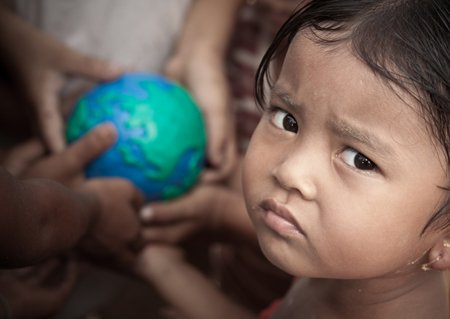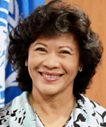
(Photo credit: iStockphoto.com)
We need to reset the global development agenda. Priority must be given to the financing of universal access to energy, which is crucial for an inclusive, sustainable and prosperous future.
Asia remains the region with the largest number of people without access to modern energy, a situation the United Nations Economic and Social is trying to address as part of the UN's Millennium Development Goals and following the Rio+20 summit.
Bringing power to its people will cost Asian countries around US$12.3 billion in total investment over the next decade--a quarter of what the world needs to spend on the same goal, according to the International Energy Agency's (IEA) 2011 World Energy Outlook report.
The case for a paradigm shift
Secure supplies of energy can boost productivity, improve living conditions and encourage enterprise and investment, among other benefits.
But across Asia, countries continue to struggle with rising fuel bills and an unstable energy supply, with poor households unable to gain access to modern energy. The region's continued reliance on power generation, driven by fossil fuels, has the inadvertent effect of cutting off rural populations from a reliable energy source, as many are off-grid.
A regional framework based on the twin goals of efficiency improvements and commitment to exploring clean and renewable sources of energy is necessary for moving forward.
Besides enforcing stricter standards of energy efficiency, countries can internalise ecological costs into energy prices to encourage the switch to alternative sources. Indonesia, for instance, is making commendable efforts to target fuel subsidies at those who need them most, instead of spreading them out across all classes of consumers.
Renewable energy now makes up only 2 percent of the region's energy mix and its integration into the main grid must be expanded alongside Asia's burgeoning--and rapidly urbanising--population. Doing nothing about Asia's current heavy dependence on fossil fuels will lead to the region's carbon dioxide (CO2) emissions skyrocketing, with major implications for global climate change. At the same time, the renewable energy sector holds great potential to electrify rural off-grid areas, through solar panels and wind turbines.
The way forward
Examples of successful innovation in efficient and future energy sources abound globally and a bank of best practices--spanning technological know-how, investment opportunities and appropriate regulatory frameworks--should be set up to help emerging market economies kickstart their own energy initiatives.
Singapore, for example, continues to invest in research and development into solar power and smart energy communities, as part of its ongoing aim to develop innovative solutions for rising energy demand in Asia.
China's Renewable Energy Law, passed in 2005, has advanced the development of both wind and solar power, with generating capacity from wind power expanding by more than 100 percent from 2005 to 2009. This has been due to an array of financial incentives such as discounted lending and tax preferences for renewable energy projects. India's national mission to develop solar energy is also taking steps to establish a regulatory framework to support solar technology manufacturers, with plans to fund start-ups.
ESCAP believes that regional connectivity and integration can also be a solution to rising energy demand. In May 2013, ESCAP will facilitate discussion of an Asian Energy Highway, to explore options among our member States for an integrated regional power grid system. The region has vast energy resources such as hydropower and coal, and these could be better utilised through an integrated system to maximise the generation of electricity based on demand.
ASEAN member states are already looking at how they can connect all their national grids so that countries with high electricity demands can make up their shortfalls with imports from their neighbours at reasonable prices. In the long run, this effort should ensure efficient use of resources and a secure supply.
Business as usual is not an option
Ahead of the Rio+20 Summit, Asia-Pacific countries should consider how they, too, can forge the necessary regional and global partnerships to institute a framework for sustainable development.
Business as usual is no longer an option, and neither is "growing up first and cleaning up later", according to the United Nations Development Programme (UNDP)'s "One Planet to Share: Sustaining Human Progress in a Changing Climate" report. As countries work to reduce poverty and increase prosperity, they will have to ensure that they leave a smaller carbon footprint.
Smart policy choices and political will are crucial to jumpstart the shift towards a greener economy capable of lifting people out of poverty and achieving inclusive, resilient and sustainable development.

Dr Noeleen Heyzer is Under-Secretary-General of the United Nations and the ninth Executive Secretary of the Economic and Social
Commission for Asia and the Pacific (ESCAP). She is the first woman to occupy this position since its founding in 1947. Dr Heyzer recently spoke at the Energy Market Authority (EMA)'s Distinguish Speaker Programme on sustainable development, a key topic at the upcoming Singapore International Energy Week (SIEW) 2012 in October.
By: Dr Noeleen Heyzer, UN ESCAP